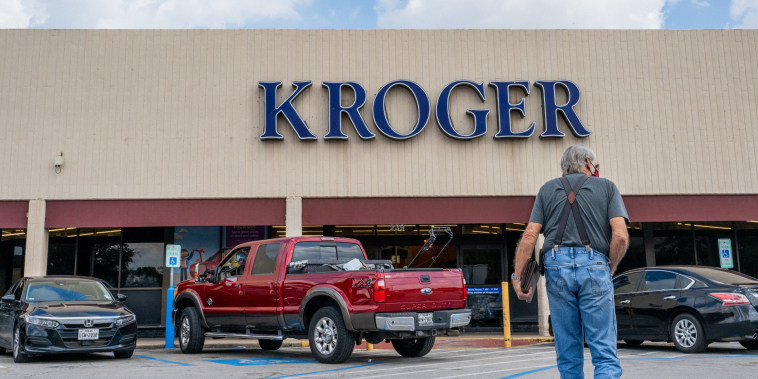In a bold demonstration of the desire to promote fair competition, the Biden administration has recently initiated legal action to block the proposed merger between America’s leading retail giants, Kroger and Albertsons. This unprecedented move brings to light the enduring importance of maintaining a competitive business ecosystem and the role of government as a watchdog for monopolistic practices.
Fueling its objections against the merger, the administration emphasized that a merger of these two retail powerhouses could potentially erode the competitive landscape within the U.S. supermarket industry. This concern resonates significantly amid America’s current business environment, which has witnessed unprecedented consolidation in recent years.
Kroger and Albertsons are two of the largest supermarket chains in the United States, establishing a significant market presence across multiple states. By combining their market shares, they would presumably create a monolithic entity that could potentially manipulate pricing structures and impose unnecessary financial pressures on consumers.
Notably, the Biden administration argues that this merger would also limit consumer choices, with fewer supermarkets competing for patronage. This could ultimately lead to compromise in the quality of products and services, leaving consumers at a disadvantage. Additionally, the fusion of these two entities could potentially disrupt the supplier-retailer relationship, with the power dynamics heavily leaning towards the newly formed conglomerate.
In response to these concerns, both Kroger and Albertson’s have claimed that their proposed merger is intended to yield considerable economic synergies – driving operational efficiencies while promising better services for their customers. They argue that rather than stifling competition, this amalgamation would foster a more robust and vibrant retail market.
However, the Biden administration considers safeguarding the welfare of consumers as its utmost priority and believes the prevention of monopolization is crucial towards this end. The proceedings to sue for blocking the merger mark a significant turnaround from previous administrations, and it is a clear signal that the current administration is poised to take a more aggressive stance against big business mergers in the interest of market fairness.
Apart from potential consumer implications, the administration also highlighted the potential adverse effects on employees of both companies following the merger. With overlapping retail operations across multiple states, it is plausible to expect a significant contraction in job opportunities due to consolidation. The administration argues that blocking the merger would protect jobs, thereby supporting economic growth and stability.
In this lawsuit against the Kroger-Albertsons merger, the Biden administration is making a potentially game-changing statement on its commitment to antitrust regulations. The decision has, understandably, generated differing viewpoints, and it remains to be seen how the courts will rule on the matter.
While we wait for the court’s verdict on this controversial move by the Biden administration, one thing remains clear: the importance of healthy competition in the supermarket industry cannot be overstated. By maintaining a varied landscape of competitors, it ensures that customers can continue to exercise their right to choose and enjoy fair pricing, thus the scrupulous attention the administration is giving this matter at hand.
In conclusion, this move of the Biden administration against the proposed merger between Kroger and Albertsons not only displays a proactive approach towards maintaining healthy competition within the market but also seeks to establish a precedent against similar mergers in the future.




